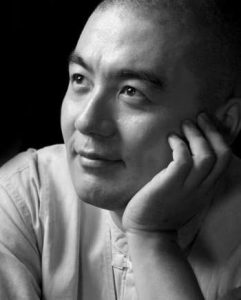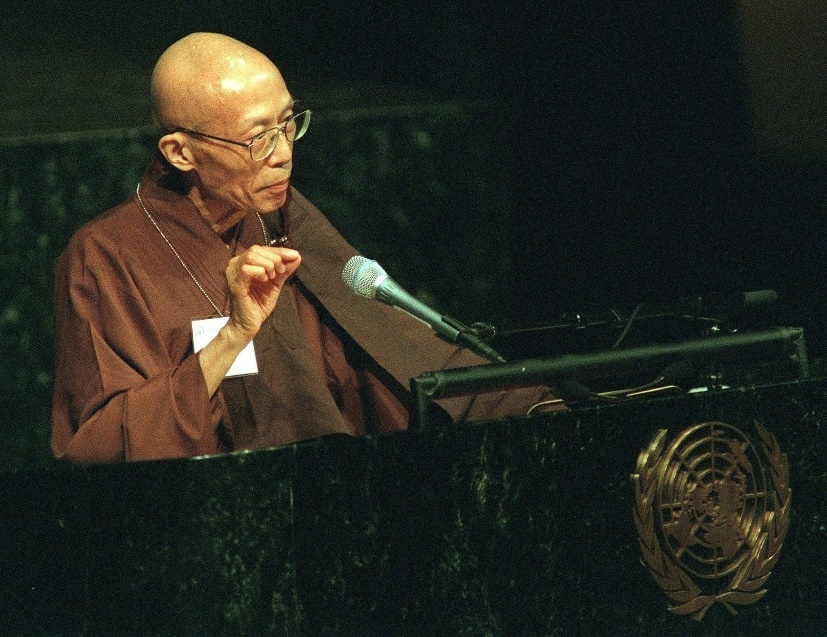
This article is a collective work by the late Master Sheng Yen’s monastic and lay disciples in the West. We would like to dedicate this article to our great teacher for his compassion and wisdom and for his teachings and guidance.
Master Sheng Yen (1930–2009) once said: “My life is a journey of actualizing the Dharma.” When, as a young monk, he first learned about the Dharma, he perceived its benefits and thought to himself: “The Buddhadharma is so wonderful; it’s a pity that so few people know of it and so many misunderstand it.” He made an earnest vow to spread the teachings and practices of the Dharma so that more people could benefit from them, dedicating his life to fulfilling his vow—not only through the Dharma, but also through his teachings on protecting the spiritual environment and promoting global ethics.
Teaching and spreading Chan Buddhism
From his arrival in the United States in 1975 until his passing in Taiwan, Master Sheng Yen (Shifu to his students) tirelessly promoted the Dharma in the East and the West. In 1979, he established the Chan Meditation Center in Queens, New York. In 1989, he founded Dharma Drum Mountain in Taiwan, and in 1997 established the Dharma Drum Retreat Center in upstate New York. There are now nearly 50 Chan centers affiliated with Dharma Drum Mountain in the US and other Western countries, and Master Sheng Yen is renowned and highly respected in the global Buddhist community.
Master Sheng Yen was a highly innovative teacher, using wisdom and compassion to adapt his approach to the needs and interests of Western students, while adhering firmly to the teachings of the Buddha and the Chan masters who came before him. In the West alone, he led nearly 100 Chan retreats, ranging in duration from seven to 49 days. His retreat style, while stern and disciplined, was imbued with warmth, humor, wisdom, and compassion.
He published more than 50 English-language books through his own organizations, as well as Doubleday, North Atlantic Books, Shambhala Publications, and others. Many have since been translated into French, German, Italian, Korean, Polish, Russian, and Spanish, and are widely read and admired by teachers and students from various schools of Buddhism. The quarterly journal Chan Magazine featuring his teachings is now in its 37th year of publication.
Master Sheng Yen’s connections with academia in the West were extensive; he lectured at numerous universities and regularly exchanged ideas with scholars. In 2006, the Sheng Yen Education Foundation (SYEF) established the Sheng Yen Chair in Chinese Buddhist Studies at Columbia University. Since then, the SYEF has sponsored research in Chinese Buddhism, including establishing the Sheng Yen Professorship, the Postdoctoral Fellowship, the Graduate Fellowship at Florida State University, and the Postdoctoral Fellowship in Chinese Buddhism at UC Berkeley and at the University of British Columbia.
His TV program, which aired in Taiwan as Great Dharma Drum, and in the US as Zen and Inner Peace, has been popular among practitioners in the East and West alike. Over several years, he provided hundreds of televised talks on applying the Dharma in daily life, understanding ourselves and others, and subjects beyond these, many of which can be found on YouTube.
Addressing global issues
Soon after becoming a monk, Master Sheng Yen committed himself to serving humanity by working to relieve suffering—physical, emotional, and spiritual. He engaged in programs ranging from international dialogues on peacebuilding in regions of conflict, to classes on cultivating inner peace, and advocated for global ethics as a means to address the challenges facing the world. He was also very active in interfaith and peacebuilding dialogues to promote mutual understanding and harmony, and was engaged in creating a platform for youth leadership, and protecting the environment. His legacy continues as the organizations he founded engage with global issues, with a focus on promoting the Sustainable Development Goals agenda adopted by world leaders at the UN General Assembly in 2015, and by empowering young leaders.
Fostering teacher development and passing on the Dharma
Since ancient times, training at Chan Buddhist monasteries had primarily comprised carrying out daily practice and learning through the subtle influences of community life, rather than through widespread systemic education. In fact, some Dharma masters may not even have had a thorough understanding of the sutras they were expounding. Chan practitioners knew only how to meditate diligently, hoping to attain realization, but in general they did not seek to penetrate the meanings of the sutras. (Master Sheng Yen 1968, Ch.7)
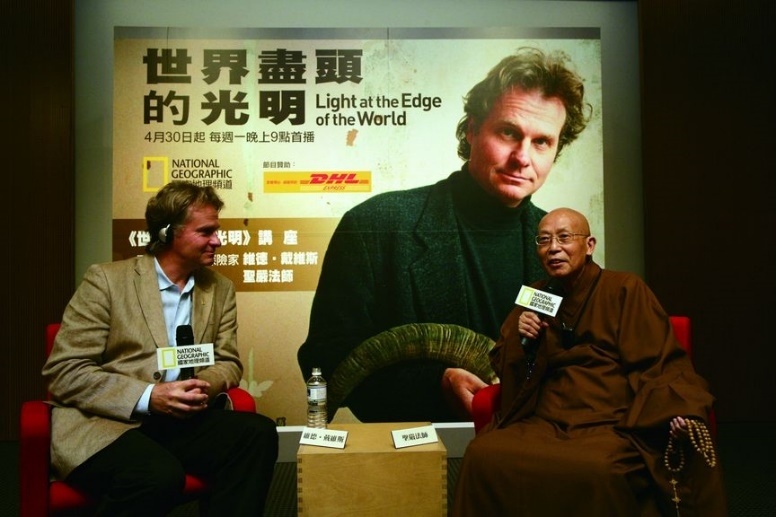
At Dharma Drum Mountain, by contrast, in addition to traditional Buddhist studies, Master Sheng Yen emphasized academic studies for monastic and lay teachers alike. Besides employing progressive methods for teaching Chan meditation himself, Master Sheng Yen trained many monastics and laypeople to teach meditation, and to spread the Dharma through lecturing and writing. By the time he passed, Master Sheng Yen had given Dharma transmission to 12 monastics and five laypeople, counting on them to spread Chan meditation and Chan teachings even further. (Master Sheng Yen 2016)
Master Sheng Yen believed that to be qualified to pass on the Dharma, potential teachers should meet three criteria: possess a stable personality, lead a pure life of observing the precepts, and to have undertaken great vows to deliver sentient beings and promote the Dharma. He once wrote: “Ever since Shakyamuni Buddha, passing on Dharma (Dharma transmission) means to hand over a mission. After hearing and understanding Buddha’s teachings, the disciples went around and taught others what they had learned and absorbed in mind, that action itself is called Dharma transmission.” (Master Sheng Yen 2010, 277)
Since passing away, Master Sheng Yen’s mission continues to grow, both in the East and the West, and his disciples have earnestly taken up the responsibility of sharing his teachings. Nevertheless, people in different places and at different times act and respond differently—there is past and present, there is East and West, and there are monastics and laypeople. Dharma Drum Mountain remains aware of the need to constantly adjust its teaching styles in the face of inevitable change, while remaining true to its mission and to the legacy of the Buddhadharma.
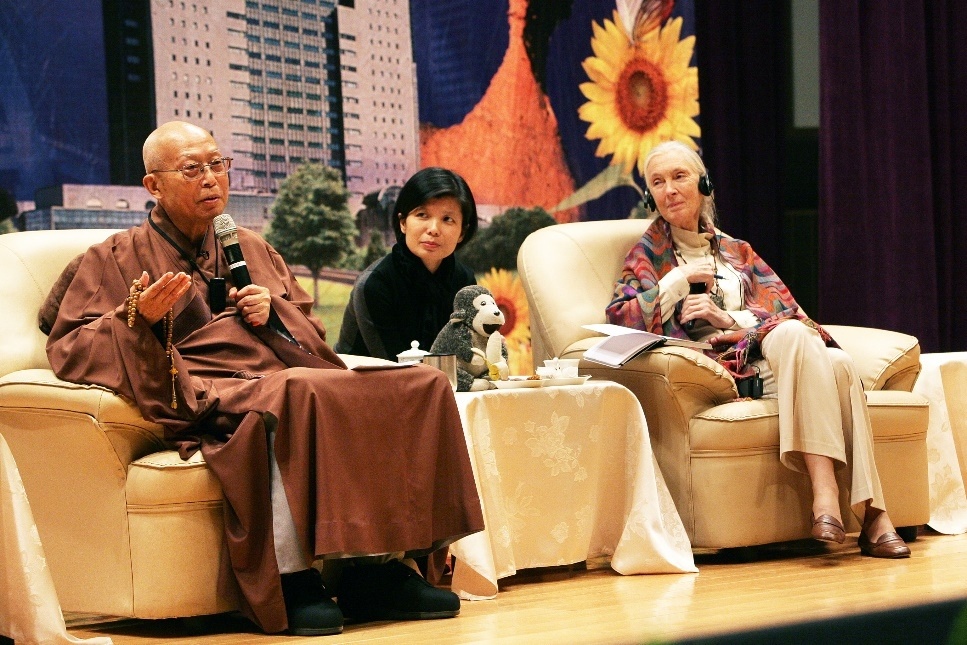
A Western disciple once asked: “Without Shifu’s direct instruction, how should we continue our practice?” Master Sheng Yen replied that although times change, the nature of the mind is constant. Therefore, while the fundamental concepts and methods of Chan will never change, and will be suitable for all time and space, teaching methods need to adapt to external conditions, otherwise Chan will not be easily accepted by people who are new to it. In response to the question, “How should Chan adapt to modern society?” Master Sheng Yen said: “The key point of Chan practice is to train our mind not to change according to different scenarios. In addition, we can even change the perception of external scenarios by our mind. This is what our movement Protecting the Spiritual Environment* is about, and that is exactly the essence of Chan. Protecting the spiritual environment is not restricted by time or space.” (Master Sheng Yen 2010, 281)
Master Sheng Yen had great hopes for Chan Buddhism in the West and felt confident about its future. He encouraged his Western disciples to take on the responsibility of using the foundation of common language, background, and culture to build a platform for spreading Chan and the Dharma.
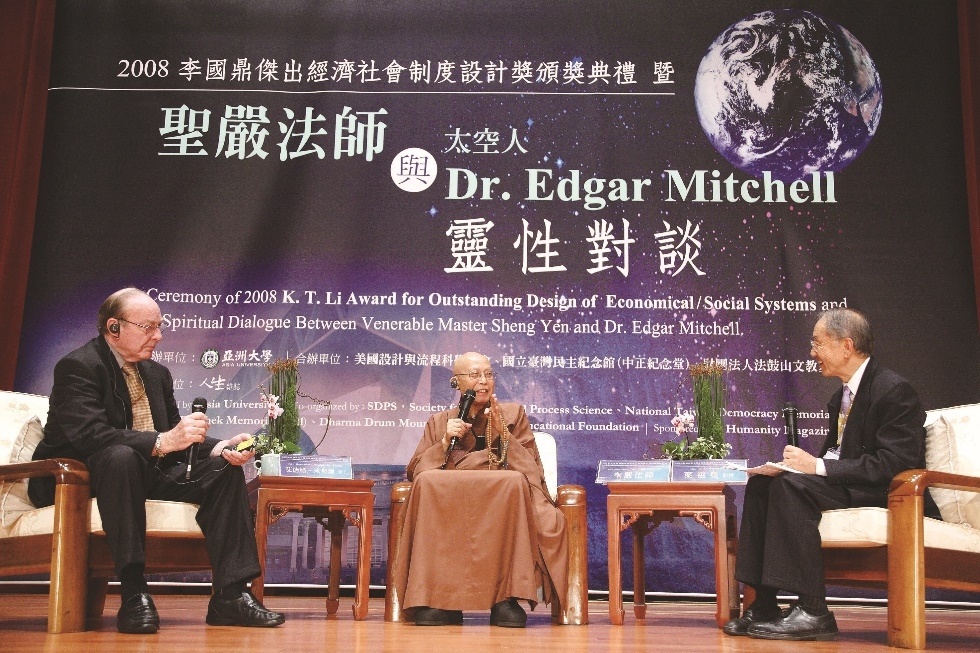
* Protecting the Spiritual Environment (Dharma Drum Mountain)
Back to Tradition and Innovation: Chinese Buddhism Beyond Asia Special Issue 2016
References
Master Sheng Yen. 1968. “Monastic Learning,” of Return Journey 歸程. Taipei: Kai Yuan Temple Publications.
Master Sheng Yen. 2016, second edition. Chan Comes West. New York: Dharma Drum Publications.
Master Sheng Yen. 2010. A Beautiful Late Time in Life 美好的晚年. New York: Dharma Drum Cultural Center.
See more
Review of Sheng Yen’s Footprints in the Snow (Open Buddha)
Western Dharma heirs and disciples of Master Sheng Yen who are teaching independently
Western Chan Fellowship, Wales: the late Dr. John Crook and Dr. Simon Child.
Dharmaloka Buddhist Community, Croatia: Zarko Andricevic
http://budisticki-centar.hr/
The Riverside Chan Meditation Group, California: Gilbert Gutierrez
Tallahassee Chan Center: Guo Gu (Prof. Jimmy Yu, who was an ordained monk from 1991–2000 at Dharma Drum Mountain)
Dharma Drum Mountain centers in North America
Chan Meditation Center, New York
Dharma Drum Retreat Center, New York
Dharma Drum Mountain Los Angeles Center
Dharma Drum Mountain San Francisco Bay Area Center
Dharma Drum Mountain New Jersey Center
Dharma Drum Mountain Dharmakaya Center (DDM-Massachusetts Buddhist Association)
Dharma Drum Mountain Vancouver Center
Dharma Drum Mountain Ontario Centre












